David Ronald Esau
David Esau grew up in a family-owned business and understands how digital marketing can be frustrating, expensive, and time-consuming.
After working at Google for 3 years and testing various marketing methods, David wanted to share his knowledge and write an understandable book with a goal of helping small businesses grow with digital marketing.
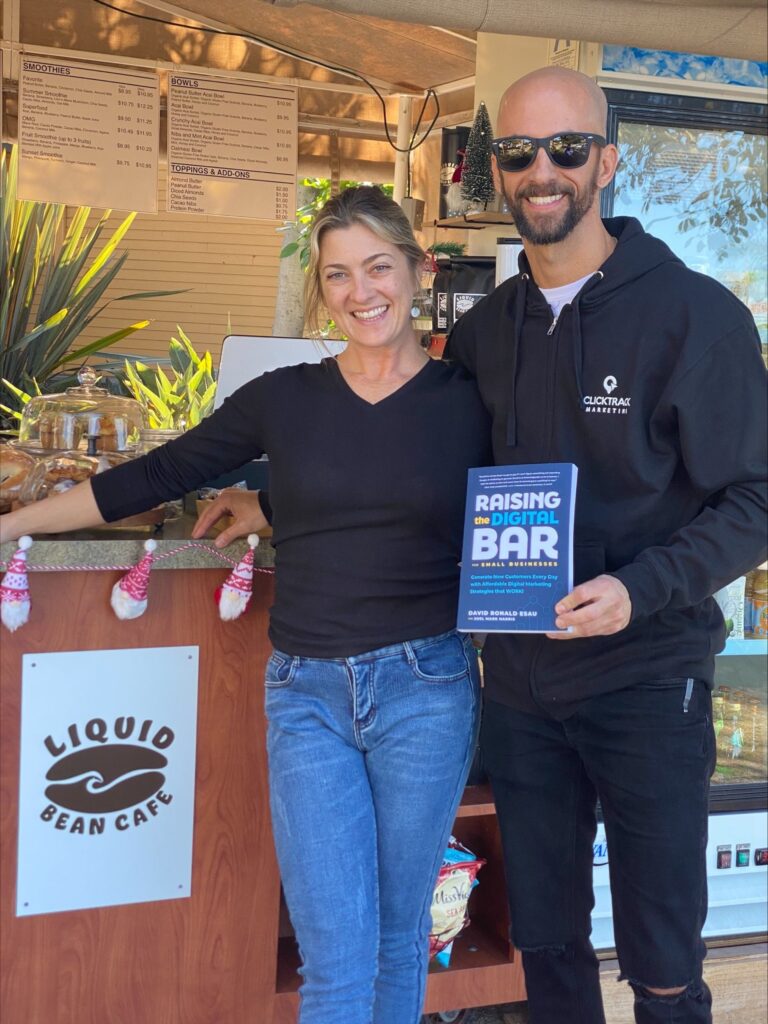
How to Grow Your Small Business
Raising the Digital Bar will teach small business owners how to get found online, increase sales leads, and boost visibility through proven, affordable digital marketing strategies. This book breaks down online marketing for small business owners into bite-sized actionable steps and provides a blueprint for tactics that help generate new customers every day.
ABOUT THE AUTHOR: DAVID RONALD ESAU
From musician to digital marketing strategist: How David Ronald Esau spent years Raising the Digital Bar for himself and his clients.
Let’s start in the early days. My family owned a small shop in El Cajon, CA called Esau Supply, which sold windows, hardware, molding, and even custom doors. My grandfather started the business back in 1956 and passed it down to my father, Ron, and his brother, Larry. Growing up in the shop, I got to see firsthand how small businesses operated. I started working at the age of 14, sweeping and cleaning the floors and breathing in tons of sawdust. Soon, I graduated to answer the phones, handle customers, build doors, deliver and check in material, and learn more about business operations.
After a year or two, I started to think more like a business owner. I was a teenager when I began to wonder: what could we do to generate more business? We were growing steadily, but I also wanted to beat the prior year’s numbers. I made it a competition and kept track of the monthly sales. As a young kid, I always gravitated toward technology. I was the first person in my high school class to have a beeper and one of my best friends, Ryan Francese, still knows the number to this day. Around 1998, I noticed that the Internet was becoming more important and widely adopted referring to usage. This, of course, was at the very beginning of Google. Back then, it was really hard to find anything on the internet. Nevertheless, we had a domain name and launched a rudimentary website. We were getting some customers to call or stop by having an online presence. These were people we never met before and hadn’t done business with a contractor we already know. I looked up Esau Supply on some of the online directories like Yellow Pages and Yelp and saw we had a couple of reviews. This got me thinking about how we could get more positive reviews to improve how we showed up online. I did a little bit of research and this was how I first stumbled on SEO. I discovered a few inexpensive ways we could improve our rankings and started implementing them. Today, most business owners are savvy enough to at least understand what SEO means and why it’s important. Back then, a lot of businesses thought that they didn’t need to be online and didn’t change. Remember that Blockbuster Video forgot to adapt online before it was too late and even had a chance to buy Netflix for pennies on what it is worth now.
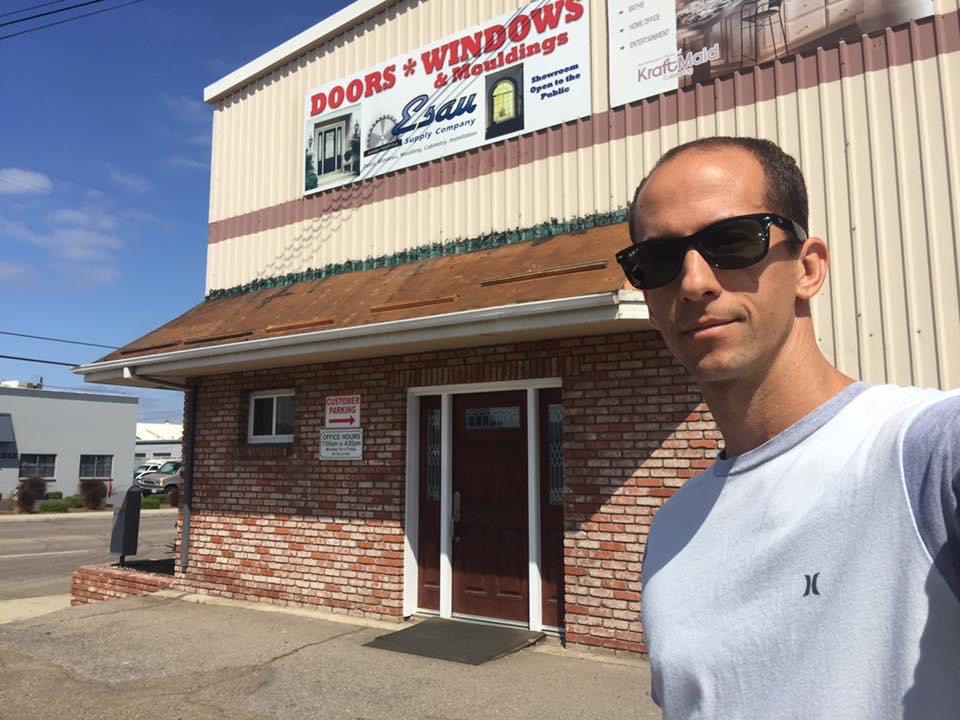
While I was helping my family with their business, I was also playing drums in a band. I wondered if I could use the same marketing tactics I had learned at my family’s door & window shop for my band. The band had always used typical guerrilla marketing tactics such as passing out flyers to people walking along the beach, then watching them toss your flyer on the ground 5 seconds later. This seems generally ineffective since it only resulted in a handful of people showing up for our gigs. The good news was that if they showed up, they usually turned into actual fans. In fact, if we didn’t pass out 200 flyers, we would have never had those 5-10 additional people at our shows.
I thought that there had to be a better way of marketing, even on a small budget. I decided to start collecting email addresses in order to quickly send out when and where the upcoming shows were happening. I laugh at it now, but back then it seemed so advanced. I would write down a person’s name and email on a piece of paper and then when I got home, I would add them to our “fans,” spreadsheet. The next time we played a show I would send an email blast out to everyone. It worked and the word got out with a lot less work on our end. No other band I knew was using email to promote themselves until at least a year or two later. Now, of course, email marketing is everywhere and still the number one way to reach your audience. Today, a lot of small businesses collect email addresses from customers but never email them. That’s like having a ton of really good food in the fridge but never eating it. What a waste!
After I started email marketing, the website mp3.com launched. It was a platform where people could stream music and discover new talent. Napster, the peer-to-peer file-sharing program, followed shortly after. This was a revolutionary service because it really helped connect music fans to find new, upcoming bands. I specifically used mp3.com because it was easy to search out who was listening to what. If somebody was listening to similar music to our band, I could message them and tell them directly about my band. For example: “If you like Jimmy Eat World, please check out my band at https://www.mp3.com/jacksbrokenheart”
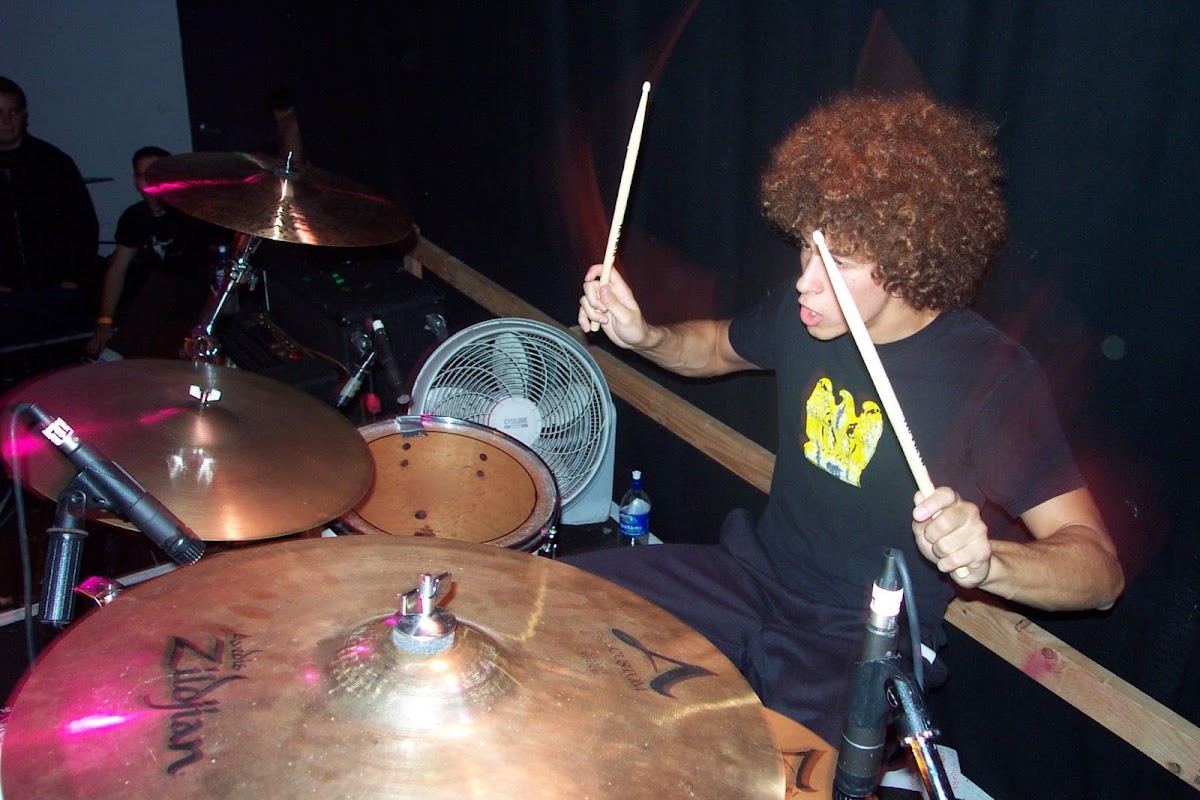
I would diligently copy and paste that message over and over again to hundreds of music fans. Again, just like emails, it was effective because nobody else was doing it. We were slowly gaining traction, all the while earning royalties for music plays on mp3 dot com. At one point, we were the third most listened-to alternative rock group on mp3.com, just after The Offspring and New Found Glory. However, for all my effort, the band made over $5,000 from mp3.com – and was able to record and self-release our EP at DoubleTime Studios in El Cajon, CA with Jeff Forrest.
Next, I learned how to sell CDs online through what I called, eCommerce. By today’s standards, it was pretty primitive. We couldn’t take online payments yet. Online payments weren’t mainstream and people didn’t trust websites to keep their credit card information secure. We simply posted our mailing address asking people to mail us $10 checks. Looking back on it, it’s pretty funny but that’s how we did it. Once we received their check, we would mail them back a CD in a padded envelope. This actually led to thousands of dollars in CD sales and for an independent band, that was enough for us to fund our own Southwest tour from CA to Louisana and back.
By this time, I was hooked on digital marketing, even if I didn’t really know what I was doing. I saw some positive outcomes and I wanted to be a part of this potentially incredible future. Fast forward many years later and after hundreds of failed marketing experiments, I met an amazing woman, Whitney Ratigan. Even though she was from San Diego, she was living in the Bay Area pursuing her career in cosmetology for over 10 years and even opened up a beautiful salon called, Pursuit Salon. After a few months of dating and traveling a lot, I decided to move to the Bay Area.
Now I had to find a job…and quick! Coming from a small business with an extensive sales background, I was able to get a contract position at Google scaling Local Services by Google. Even though Google Ads is getting easier for non-marketers, it’s still very challenging for local business owners to build and manage successful ad campaigns. Despite what most owners think, Google really wants to figure out how they can support local businesses. Yes, Google will make more money if more businesses advertise but when 4 out of 5 searches are for local businesses, don’t you think it’s time to raise the digital bar for YOUR business?
Working at Google was a fantastic experience and a dream come true. While Google was in its infancy 20+ years ago, I still used it all the time and when I landed a contract role, it was a great opportunity to learn from the inside. My only regret was not buying Google stock when it IPO-ed many years ago. Working onsite is where I really learned a lot about Google search and studied how ads work. I was surrounded by really smart people and got the opportunity to learn from them, including agency partners, and also local business owners. I helped hundreds of businesses become more familiar with Google products and even some helped set up their Google Ads from the start. It felt good to have a real and immediate impact on small businesses that were ready to grow their business from online marketing.
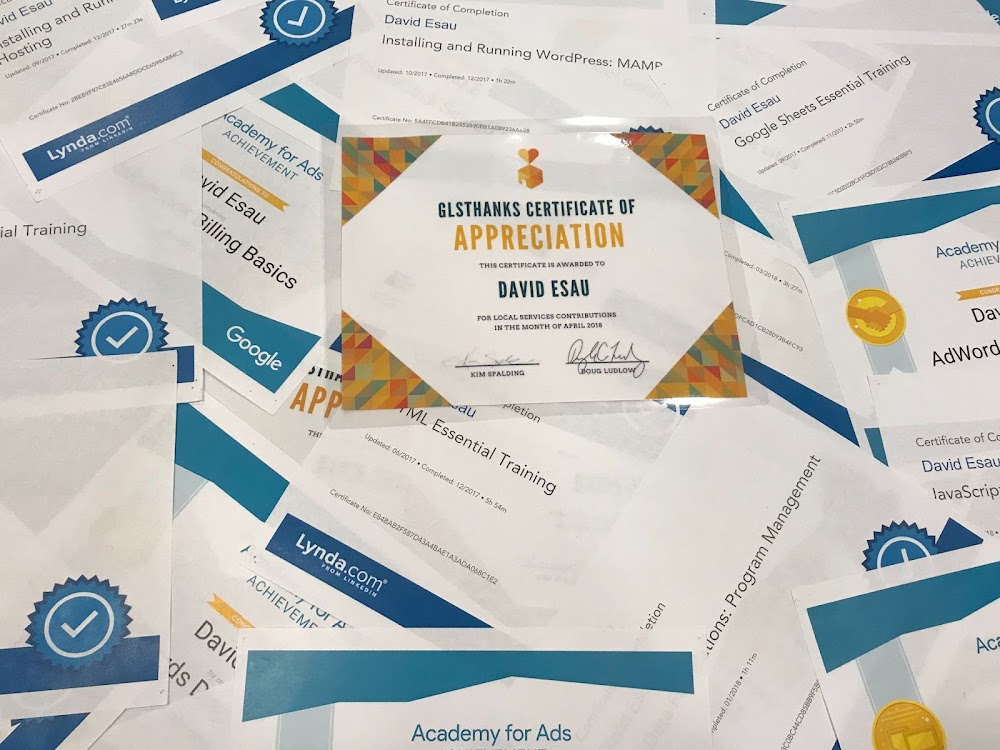
Back then the Google Guarantee Program was still in its testing stages. Daniel Vo and I helped shape the product by collecting feedback from businesses and meeting with product managers to share insights. Then they would share the findings with the engineers to implement some of the suggested changes. This program – which still runs to this day – basically is a warranty backed up by Google. Google vets small businesses, making sure that they are well-run businesses with high integrity in the way they work with their customers. If the customer isn’t satisfied with the work, Google will reimburse the customer up to the amount paid for the initial service.
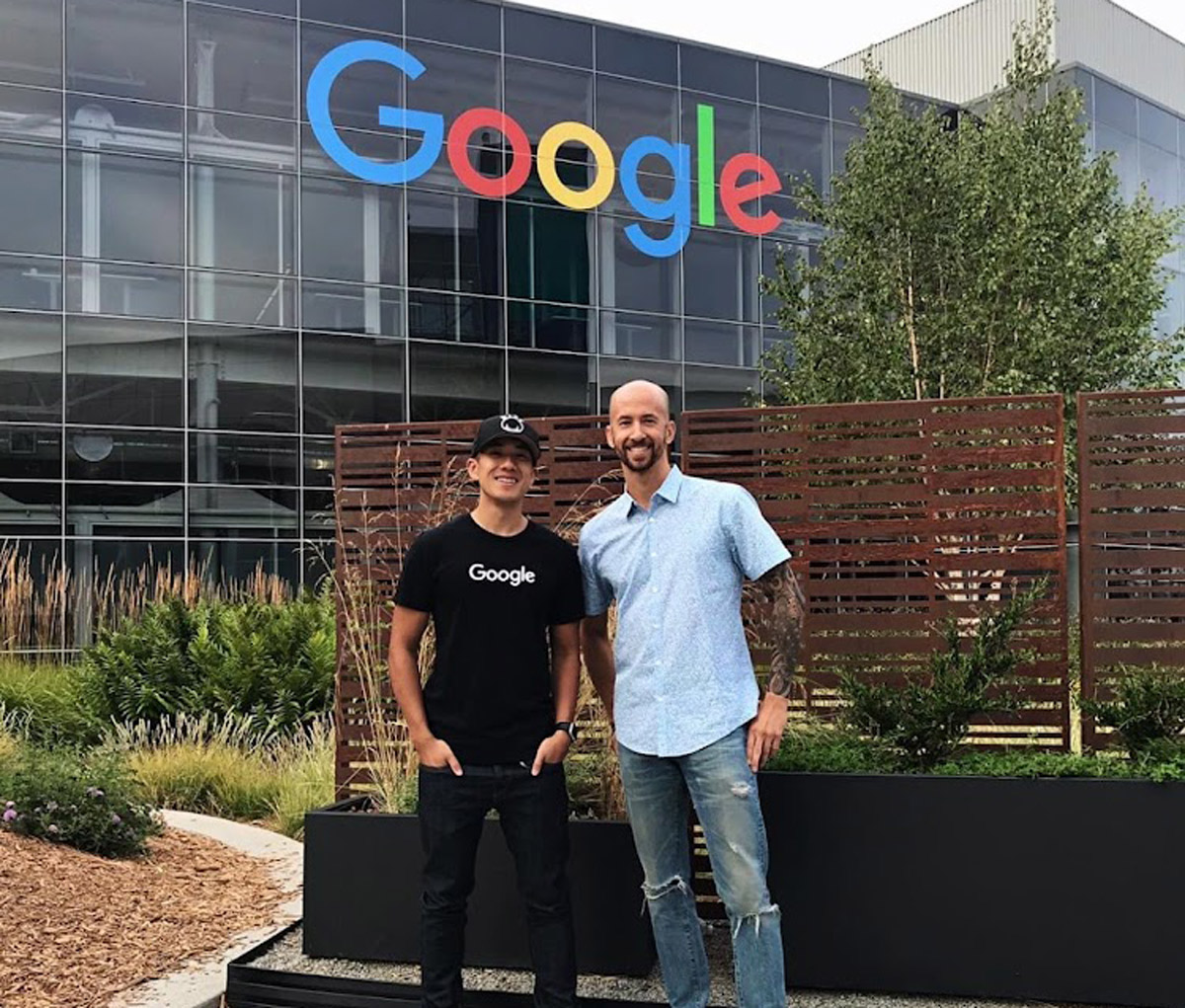
Luckily, I was able to work with all types of businesses and eventually marketing agencies that ran ads for their end customers, mostly small, local businesses. Figuring out what they were doing to produce long-term results was a top priority. I also started to partner with bigger companies in the hotel and hospitality industry that were spending millions of dollars a month on Google Ads with a positive return on ad spend. This means that for every dollar they spent online, they were making 5 to 10 times that back. If you gave me a dollar and I handed you $5 back, would you give me a dollar? I sure hope you said yes. That’s how ads work if run successfully. The whole experience at Google and working with large advertisers was amazing but there is nothing like helping small business owners and hearing directly from them that what you are doing is working.
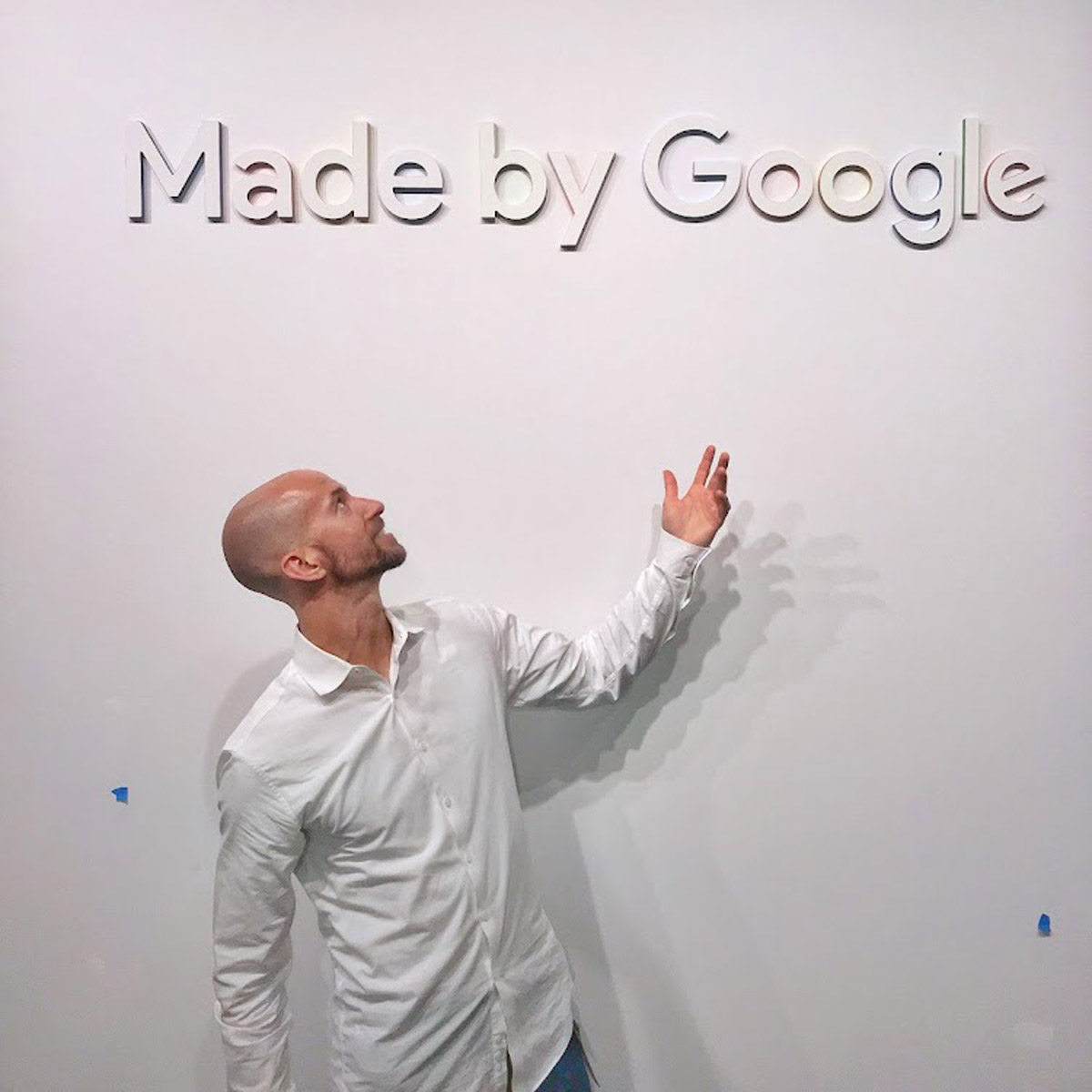
After my contract ended at Google, I went on to work for a couple of software companies called, KickFire and MotiveMetrics, respectively. I actually spent more time optimizing high-spend Google Ads campaigns working as a customer success manager than I did at Google. MotiveMetrics is where I felt I grew the most in terms of data analytics, understanding search intent, and more. Thanks to the talented and extremely intelligent team over there, I applied what I learned from multi-million dollars accounts to small businesses. Now that I was even deeper in the weeds, I quickly realized that no small business owner has time for this. Marketing is a black hole and I love every minute of it, or should I say endless hours. If you’re like most owners you are not trying to become an expert, you just haven’t found a trustworthy, experienced person yet, or you’ve been burned before and it left a very bad taste behind.
After managing a few Google Ads accounts as a side hustle and with success in retaining clients, I decided I would start my own agency. Click Track Marketing was born out of necessity with a mission to help over 500 local business owners generate new customers with digital advertising and local SEO. The company name is really a shout-out to my early days when I was more involved in music and in a serious band, although I still drum once in a while. A click track, or metronome, is a series of audio cues used to indicate timing by giving a regular tick. I really feel it encompasses the data side of the business and my passion for music. Today, I help businesses of all shapes and sizes be more visible on Google, track where those clicks came from, and drive quality leads to their businesses.
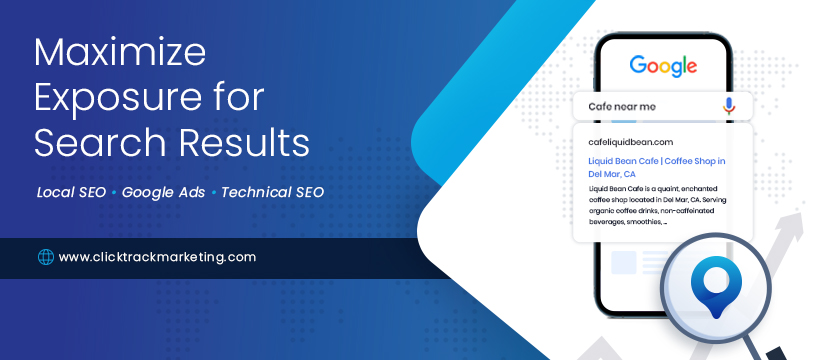
I’m a big believer in looking at your data and making decisions based on what you see, not just how you feel. Everything in your business should be tracked: your staff hours, your inventory, your P&L, yet the one thing people don’t measure correctly is their marketing. Unfortunately, the usual reason for that is they don’t know how. Business owners are so busy running their companies that they don’t have time to figure out what is working and what isn’t, yet it’s a critical part of the business. Digital Marketing needs to be handled as effectively as the rest of the numbers that you deal with.
I’ve learned a lot about digital marketing over the last twenty years. I’ve seen what works and I’d like to share this knowledge with you in an easy-to-understand way. Google is a bit of a hurdle. It’s scary but if I can demystify it even just a little and you are able to start using it effectively and you attract new customers, I will consider my job done.
No matter whether you want to do the marketing yourself or have someone manage your online presence, we are here to help. Knowing that trust and communication are key factors to building a long-term partnership, Joel Mark Harris and I spent hours working on this book. We share tons of knowledge with actionable steps that you can start implementing today.
During the beginning stages of writing of this book, my world was turned upside down and heart was shattered to pieces. On January 24th, 2022, my father, Ronald Esau, died by suicide. Besides a loving husband, father, and famous race car driver, he was also a small business owner and ran Esau Supply with my Uncle Larry. Losing my dad like that has been extremely difficult to say the least. A lot of significant things have changed or have been completely disrupted in my life. With your help, I am hoping we can make a difference for others who have been impacted by loss or think that suicide is the only way out. This is why a portion of the book proceeds will go to the American Foundation for Suicide Prevention, San Diego chapter.
For comments or questions, please contact David Ronald Esau at david (at) raisingthedigital.com or visit https://www.clicktrackmarketing.com/ to learn more about my digital marketing agency for small businesses.
